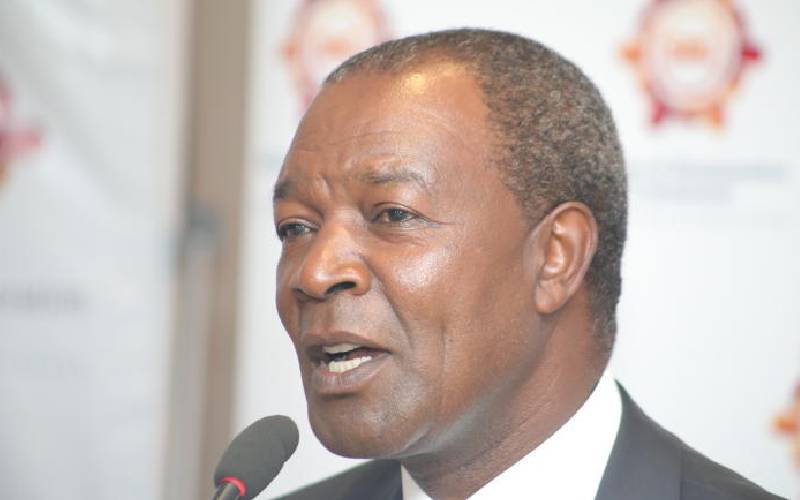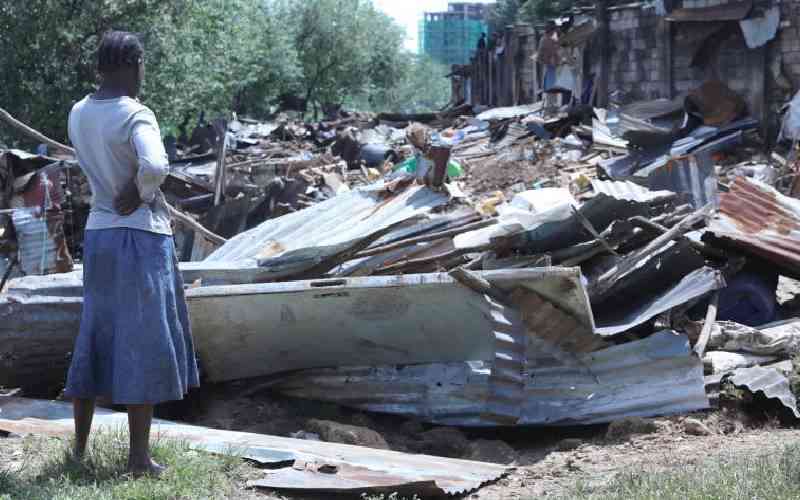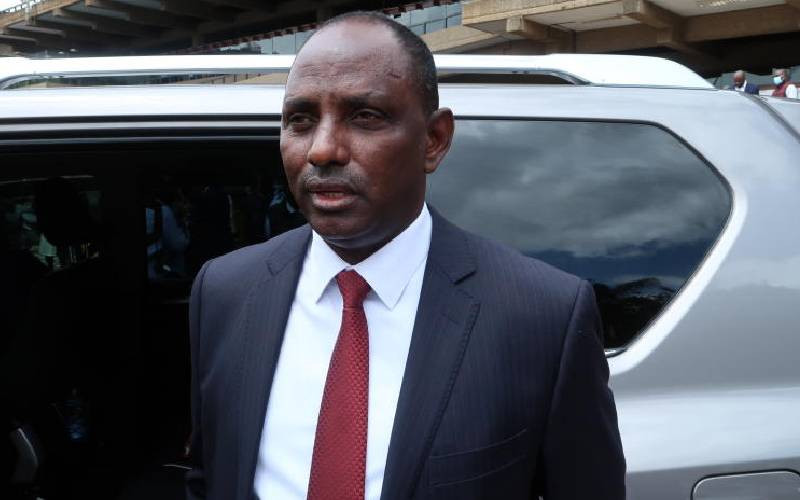At 27, Sitawa Wafula, was diagnosed with bipolar disorder, survived rape, attempted suicide and suffered from debilitating seizures. Somehow she has managed to turn her perceived weaknesses into her greatest strengths, writes SHIRLEY GENGA
Describe yourself?
I am an activist who uses poetry and event planning as a channel for advocacy for sex/reproductive rights and mental health rights. I base this on my personal experience and personal motto; Knowledge is power, and I share mine through regular workshops, school talks and my blog http://sitawa.blogspot.com
Tell us about your childhood?
I grew up in Ngong and have three brothers. I am the second born and only girl. I went to Ngong Hills Academy and then St Lucy Kiriri. |
| Sitawa Wafula |
Something happened when you were in High school that changed your life...
While in Form Four I had my first seizure attack. After the first attack I was taken to a dispensary and given tranquilizers before being transported to Nairobi Hospital. I stayed there for the whole of second term and only went back to do my KCSE. I still managed to get an A- in Mathematics, which was my best subject.
What did you do after high school?
I finished school and applied for Actuarial Science course at University of Nairobi in 2003. During this period, something happened that changed my life forever. On Sundya June 15, I was passing by a friend¡¯s house on my way to church. He offered me tea which he had laced with drugs and then he raped me.
What happened next?
I went home and I did not tell anyone. I immediately showered because I wanted to wash away all the dirt and filth. I wanted to die, that was the only remedy I thought could cleanse my soul. That night I tried to kill myself, I took some pills and slept but fortunately the pills were mild and I did not die. I then withdrew into a shell, on the outside I looked normal but the incident continued to torment me. I would replay the events in my head over and over. Sometimes I would wish I had never gone, other times I would think maybe it would not have happened if I had not gone to church, maybe if I had not gone for first service. I was dealing with everything on my own. I felt too ashamed to tell anyone, back then I did not realise that it was not my fault and thus I had nothing to be ashamed of.
What did you do next?
In the midst of what I was going through I got the letter to join University of Nairobi to study Actuarial Science in September of 2003. That was my light in my dark tunnel; it helped to keep me busy and positive.
¡¡
How did the experience change you?
Stay informed. Subscribe to our newsletter
I was very anti-social at University; I would only hangout with a girl who I had known from high school. If I was not with her I was at the library. I did not want anyone to get too close to me because I did not want anyone to find out the truth about me.
Did the seizures stop?
After my first year of University my fits began again. I was still exhibiting various phases that were not there the first time it happened in high school. So it was still a learning experience, coupled up with a lot of speculation and misdiagnosis as to why I was suffering from seizures. I went to second year but eventually dropped out in the first semester. I was in and out of hospital and it became financially draining for my family.
How did leaving school affect you?
I have always loved maths; it had always been a constant in my life. In high school when I started getting seizures I had my maths. I remember even during KSCE maths paper two, I had a seizure but I still managed to get an A-. After the rape I still got the chance to study actuarial science. I have always defined my purpose and self around maths but now all over sudden it was taken away from me, I did not know who I was or where I would go next. At the same time I felt guilty because it was my sickness that had caused the financial mess, I hit rock bottom.
How did you overcome the depression?
There is only one way out and that is up. I began to journal for the first time in my life. I would write about everything that was going on in my life, if I was happy or sad. I believe that writing saved me. I was able to let everything out and to finally share my rape experience, it was on paper but it was the beginning of my healing. I reached the point where I realised that my dream to do actuarial science had been put on hold but that did not mean that my life was over. I began doing the thing I loved most, teaching Mathematics as a volunteer teacher before moving on as a private Mathematics tutor in 2007.
Then...
I got a job as an administrator at a cyber cafe in 2007 and I worked there until July of 2008. During this time, I was like someone else, it was like I was on a high and very extroverted. Around that time, I was diagnosed with bipolar. It is a disorder that causes serious shifts in mood, energy, thinking, and behaviour ¡ª from the highs of mania on one extreme, to the lows of depression on the other and the cycles last for days, weeks, or months. And unlike ordinary mood swings, the mood changes of bipolar disorder are so intense that they interfere with your ability to function.
How did you start writing poetry?
Around 2009, I decided it was time to share my writings and so I started attending Kwani open mic and did some poetry then later started poetry nights at Discovery Restaurant, Nairobi. I also started poetry workshops and even began to open up about my rape and mental condition. I became very vocal. I first opened up about my rape during a poetry reading and I will never forget the response I got from the audience. People would come and see me after and share their experience. That was what inspired me to start the ¡®Sunday 15th project¡¯ in 2009. It is a project where I talk about my experience; I go wherever I am invited. I also blog about my experience and the response has been overwhelming, so many people suffer silently after rape and when they read my blog they write to me about their experience and we encourage each other. Then in 2010 the seizures began again and I was forced to take a break.
Tell as about your work with mental health care in Kenya?
In 2010 I was appointed Mental Health Youth Ambassador because I was very vocal my bi-polar condition. I have gotten the opportunity to create awareness on mental health care and to be part of the drafting of the mental health care Bill.
Do you still have the seizures?
The attack¡¯s now come in form of trances where I lose consciousness of what is happening. There are also days when my legs just get numb and I am stiff when I walk. Sometimes I have to surpport myself on a wall. I never know when I will get an attack, it just comes. While sometimes it is not my body but my head that jerks uncontrollably. With time we have come to understand my illness. My family, friends now know what to do and the need to get me admitted has reduced.
How do you cope with it all?
For a while I was a little sacred and would stay home but I realised that the attacks would come even if I was at home and I would rather be out on the street working on something than at home afraid an attack may come. I refuse to be defeated and to let the attacks dictate my life.
Apart from advocacy what else do you do?
I own my own Events Designing outfit, Events by Sitawa, which focuses on art and advocacy. Some of the events I have done include; The first Mr & Miss Strathmore, Programme Co-ordinated Anyang¡¯ Nyong¡¯os Africa Cancer Foundation Launch, Logistics. I am also very passionate about social networking. I do not want to be an entrepreneur whose only goal is to make money, I want to initiate change and to help other young people achieve their dreams. That is why I founded Runway254 - a platform for upcoming fashion players to showcase, network and meet potential clients.
You have a new project 100 girls in 100 days?
It is a campaign that will last for a hundred days and its purpose is to raise money to take 100 girls from North Eastern through secondary school. The campaign target is Sh10 million given the average fees in most schools is Sh25,000 inclusive of Sanitary towels and other necessities. This brings the total to Sh100,000 per girl for the four years, it began on March 1. You can also visit the campaign site (www.100girlsin100days.co.ke)
What are your future plans?
On a personal level I want to have a family of my own,so, Mr Sitawa Wafula wherever you are, hurry up already! In my line of work; I looking forward to the day we will have a Mental Health Care Policy to help persons with mental illness. People have been tossing the idea of starting a Sitawa Foundation that concentrates on sex/reproductive rights and mental health rights; maybe it will be come to pass.
Looking back, how do you think you survived all you went through?
God has been by my side. My parents are God¡¯s best gift to me, my relatives, Uncle Musee and Auntie Jane have been very supportive. I could not have done a quarter of the things I have been able to without their support. Also my best friend, he is my spine, he listened to my first ever recitation, he is the first person I ever told about the rape ordeal.
 The Standard Group Plc is a
multi-media organization with investments in media platforms spanning newspaper
print operations, television, radio broadcasting, digital and online services. The
Standard Group is recognized as a leading multi-media house in Kenya with a key
influence in matters of national and international interest.
The Standard Group Plc is a
multi-media organization with investments in media platforms spanning newspaper
print operations, television, radio broadcasting, digital and online services. The
Standard Group is recognized as a leading multi-media house in Kenya with a key
influence in matters of national and international interest.
 The Standard Group Plc is a
multi-media organization with investments in media platforms spanning newspaper
print operations, television, radio broadcasting, digital and online services. The
Standard Group is recognized as a leading multi-media house in Kenya with a key
influence in matters of national and international interest.
The Standard Group Plc is a
multi-media organization with investments in media platforms spanning newspaper
print operations, television, radio broadcasting, digital and online services. The
Standard Group is recognized as a leading multi-media house in Kenya with a key
influence in matters of national and international interest.






